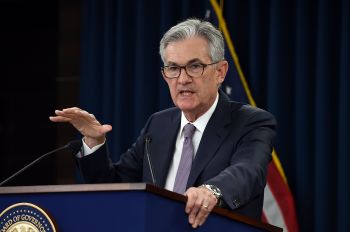Investment banks still counting losses
TEXT OF STORY
KAI RYSSDAL: You couldn’t pick a group more relieved by the Fed’s rate cut yesterday than the big investment banks. Over the past couple of years, they’ve become some of the biggest mortgage lenders of all.
So analysts were watching closely yesterday when Lehman Brothers kicked off Wall Street’s earnings season. They were pleasantly surprised with a mere 3 percent drop in profits. But the bloom came off the rose this morning with Morgan Stanley — earnings down 17 percent and almost $1 billion in bad loans they had to write off.
We’ve got Marketplace’s Amy Scott on the line from New York to help explain why the disparity. Hi Amy, how are you?
AMY SCOTT: I’m well, thanks, and how are you?
RYSSDAL: I’m well — so we had Morgan Stanley this morning down 17 percent in earnings… Yesterday, though, Lehman Brothers said 3 percent — plus or minus — drop in their earnings. What’s the difference?
SCOTT: Well, these are two pretty different firms. But Lehman did mark down about $700 million in loans, though it definitely wasn’t immune. Lehman made a lot of money overseas and in other parts of its business. And it also had less exposure to subprime loans than some of the other investment banks. But it’s really hard to compare these firms, because they have a lot of leeway in how they price certain assets.
Some credit-related securities, for example, are hard to value because they don’t trade very often, and have traded even less lately. I talked to Jack Ciesielski, who publishes the Analyst’s Accounting Observer. He says a lot of guesswork goes into these markdowns.
JACK CIESIELSKI: Let’s put it this way: If you didn’t see markdowns, then you’d have a problem. How much faith can you have? I guess you have faith until it’s shaken by something that you’re suspicious about. And you do that by looking at context and the bigger picture.
SCOTT: And we’ll get more context when Bear Stearns and Goldman Sachs report their earning tomorrow.
RYSSDAL: And so what are our best guesses about those guys?
SCOTT: Well, things are not looking so good for Bear — analysts surveyed by Bloomberg News say it’s earnings per share dropped by nearly 40 percent. And Bear Stearns has a lot more exposure to the subprime market than some of these other banks. But Goldman is actually predicted to post a profit, because they sold a power company during this quarter.
RYSSDAL: Let me get a little bit technical on you here, Amy, and back you up to that valuation thing for a second… Back in August, when this whole credit squeeze started happening, part of the problem was that nothing was trading, so they couldn’t do a “mark to market” — that is, price these assets that they have in all these funds. You’re telling me now that here we are, a month, six weeks later, and this is still happening?
SCOTT: Well, yeah, because it’s hard to mark something to market when there isn’t a market for the security. So I think analysts are expecting to see a little bit more of what they call “mark to model,” or “mark to myth,” which is basically guesswork. Unfortunately, we won’t know for a while just how they went about valuing these things — but it makes it really hard to compare the different banks because they may look at them quite differently.
RYSSDAL: As we bathe in the afterglow of the Fed’s rate cut announcement yesterday, is there a sense that we still don’t know what we don’t know about the financials of the bank stocks — the ones most exposed to the subprimes? How are they going to fare?
SCOTT: Well, it depends who you talk to — Morgan Stanley actually warned that there would be a couple of quarters of grief. But yesterday Lehman’s said the worst was behind us. I talked to one investor who’s holding on to his investment banking stocks — he thinks they’ve got enough else going for them that this isn’t going to be a long-term concern. But it really depends how quickly the credit market recovers.
RYSSDAL: So really, we don’t know, right?
SCOTT: Exactly.
RYSSDAL: All right… Amy Scott in New York. Thanks, Amy.
SCOTT: Thanks, Kai.
There’s a lot happening in the world. Through it all, Marketplace is here for you.
You rely on Marketplace to break down the world’s events and tell you how it affects you in a fact-based, approachable way. We rely on your financial support to keep making that possible.
Your donation today powers the independent journalism that you rely on. For just $5/month, you can help sustain Marketplace so we can keep reporting on the things that matter to you.


















